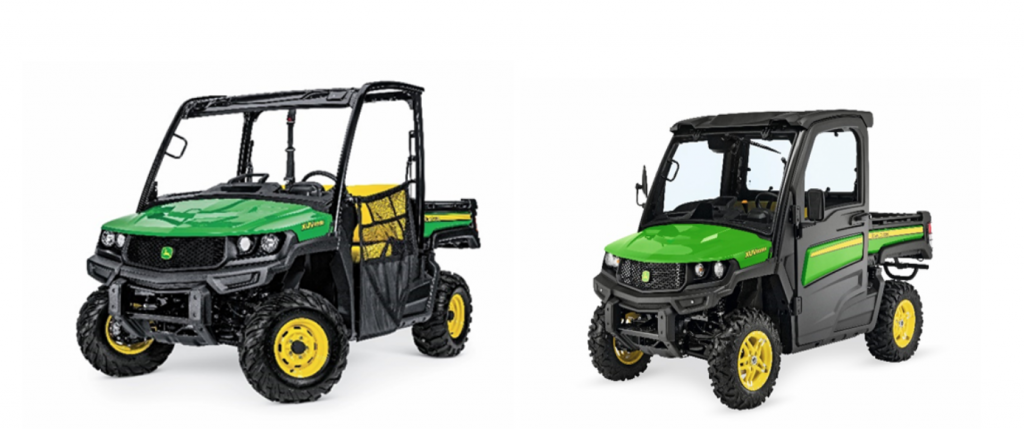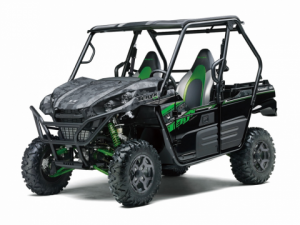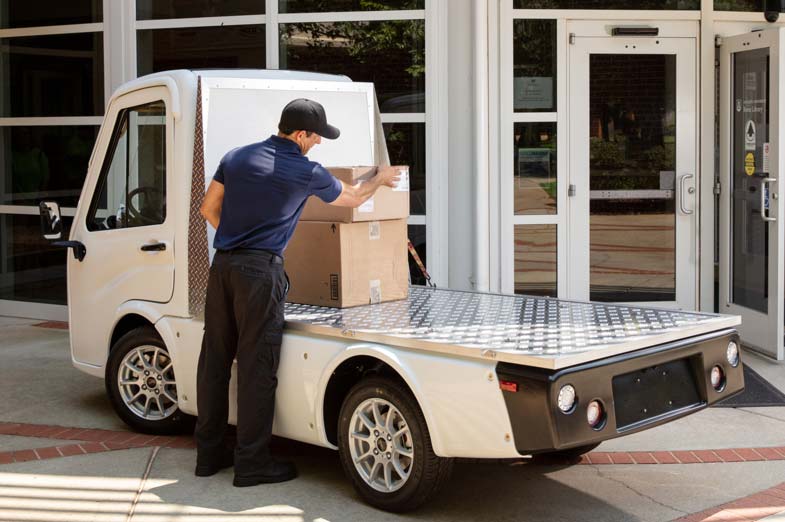
Oregon-based Arcimoto recently started production of their Fun Utility Vehicle (FUV) to meet pre-order demand for 4,100 vehicles. Technically a motorcycle, the FUV is an electric powered three-wheeled vehicle that seats two. Many states have a special classification for three wheeled vehicles and only require a regular driver’s license to operate the vehicle. The current FUV Evergreen edition costs $19,900 but the company hopes in the future that volume production will reduce base model pricing to $12,000 and possibly below $10,000.
Arcimoto FUV Specs
The Arcimoto FUV is essentially a trike with two wheels up front and one in the rear. Each wheel up front has an electric motor. The vehicle has a 19.2 kWh lithium ion battery pack for a range of just over 100 miles and a top speed of 75 mph. The FUV has handlebar steering with a twist throttle and finger activated regenerative braking. Foot operated hydraulic brakes on all three wheels augments the regenerative braking. Other specs include:
- Removable doors
- LCD display
- Heated seats
- Bluetooth speakers
- Two USB ports
- Phone cradle
- Lockable rear storage
- Criss-cross seatbelts
The company is also developing a one person delivery vehicle and an emergency responder vehicle based on the same platform.
SVR’s Take
The Arcimoto FUV satisfies a need for a small, energy efficient vehicle that can be driven locally. Even though the FUV can operate at highway speeds I believe the sweet spot for the vehicle will be on roads up with speed limits up to 50 mph. Gated communities and vacation destinations that already allow low speed vehicles (LSVs) and golf cars will be a key market.
PTV Market
The problem with this market currently is that LSVs and golf cars can only go 20 to 25 mph and are often restricted to certain public roads based on speed limits and local ordinances. Classified as a motorcycle and with the power to operate at higher speeds, the FUV avoids this issue. This combination greatly increases the functionality of the FUV. The FUV with a speed limited setting can go from golf course to gated community to higher speed public roads. Therefore, the FUV is appropriate for a wider range of activities.
FUV Challenges
I currently see three main challenges that may limit the FUVs appeal. The first is consumer acceptance of driving a three-wheeled vehicle with handlebar steering. This is different than many consumer’s traditional driving experience. The second is price. The company should target the $10,000 to $13,000 price range to be competitive with LSVs, PTVs and golf cars. Although, the increased functionality of the vehicle is a mitigating factor that could allow for a pricing premium. The third is that the vehicle is only two passenger, so it may have limited appeal for families or larger groups.
Competitive Landscape
The FUV is a direct challenge to the LSVs and more importantly the personal transportation vehicles (PTVs) that have become a key growth market for the traditional golf car companies. The decline and stagnation in fleet golf car market has forced these companies to target the utility vehicle and PTV markets for growth. (LSVs have largely been relegated to college and corporate campuses with some personal transportation use.) This could become the classic case of the outsider coming in and disrupting a market.
Where are the golf companies?
There is no reason the golf car companies could not have developed this vehicle first and they certainly have the resources and time to create a vehicle of their own. However, in the past these companies have missed opportunities such as the utility vehicle market for which they were well positioned. In addition, the FUV could serve as an alternative to a second or third automobile for running local errands or short one or two person commuting.
What Does The Future Hold
It will be interesting to see what kind of uptake the consumer version has. Recreational vehicles like the Can-Am Spyder and Polaris Slingshot have not completely taken off and remained niche. However, they are more recreational and less of a practical and green transportation alternative than the FUV. I think the delivery version of the FUV might be the sleeper product. Given concerns about urban congestion, pollution and sustainability, these vehicles could become a popular option for last mile logistics in crowded cities. The urban environment could play to the vehicle’s strengths of smaller size and zero emission powertrain while mitigating weaknesses such as limited top speed and driving range.





